Source: Alpha Community

Image Source: Generated by Wujie AI
In August 2022, at the beginning of the generative AI wave, four engineers from different industries gathered together to create an AI-driven search engine to challenge Google. What they presented to us is a conversational search (answer) engine, where users ask questions and it provides answers, along with the source of the answers.
This looks like ChatGPT with internet connectivity, but unlike ChatGPT, it pursues answer accuracy more. As the company's founder Aravind Srinivas said, "We come from academia, and there is a principle that when writing a paper, you cannot say something that you cannot reference. This is also the core principle of our company. We try to make LLM never say something it cannot verify."
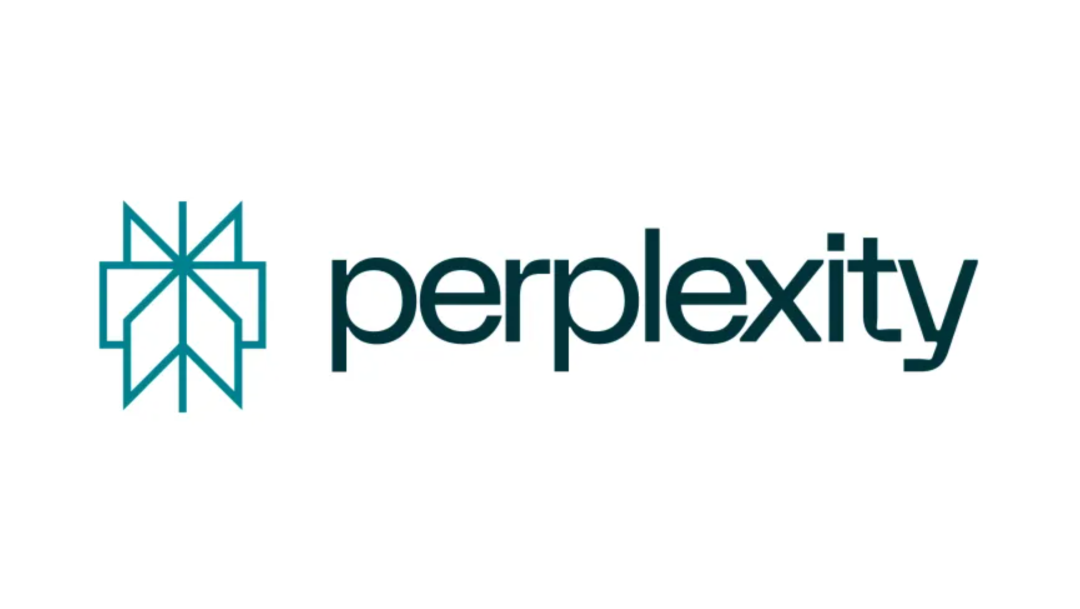
Currently, the company called Perplexity AI has just received a Series B financing of $73.6 million led by IVP, with participation from Nvidia, Databricks, NEA, and BVP. In addition, notable investors such as Elad Gil, Shopify CEO Tobi Lutke, former GitHub CEO Nat Friedman, and Amazon founder Jeff Bezos are also involved.
It is well known that Jeff Bezos values data greatly. Although Perplexity AI has not yet been profitable, its monthly active users have grown to 10 million without marketing, with over 1 million mobile app downloads on iOS and Android platforms, and it handled over 500 million queries last year. Most importantly, its growth rate is astonishing. According to Similarweb's data, its traffic reached 45 million visits in December 2023, compared to only 2.2 million visits when the service was launched in December 2022.
In the $25.6 million Series A financing in 2023, its investors included not only institutional investors and the individual investors mentioned earlier, but also scientific investors such as Andrej Karpathy and Yann LeCun. This indicates that not only entrepreneurs see its business potential, but scientists also fully recognize its technical capabilities.
In August 2022, at the beginning of the generative AI wave, four engineers from different industries gathered together to create an AI-driven search engine to challenge Google. What they presented to us is a conversational search (answer) engine, where users ask questions and it provides answers, along with the source of the answers.
This looks like ChatGPT with internet connectivity, but unlike ChatGPT, it pursues answer accuracy more. As the company's founder Aravind Srinivas said, "We come from academia, and there is a principle that when writing a paper, you cannot say something that you cannot reference. This is also the core principle of our company. We try to make LLM never say something it cannot verify."

Admiring Google, Overturning Google
Perplexity AI was co-founded by Aravind Srinivas, Denis Yarats, Johnny Ho, and Andy Konwinski in August 2022. They have rich backgrounds in AI, distributed systems, search engines, and databases.
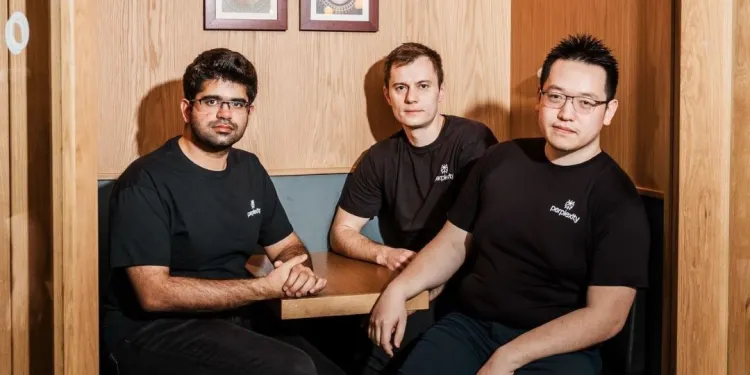
Aravind Srinivas, a graduate of the Indian Institute of Technology and a Ph.D. from the University of California, Berkeley, has focused his entire academic career on reinforcement learning. He has worked at DeepMind, Google, and OpenAI, always at the forefront of generative AI.
Denis Yarats, with a PHD in AI from New York University, has had a career spanning Microsoft, Quora, and MetaAI, and serves as the company's CTO.
Johnny Ho oversees the company's strategy, graduated from Harvard University, and has been both an engineer and a trader at Tower Research Capital.
Andy Konwinski is a well-known figure, being a co-founder of Databricks.
Aravind Srinivas' entrepreneurial interest was initially inspired by movies like "The Social Network." After arriving at Berkeley, he began to look for ways to become an entrepreneur starting from academia. In the summer of 2022, while dealing with large models at OpenAI, he saw products like GitHub Copilot truly entering the production process and generating revenue.
This convinced him that the time was ripe to start a company. Aravind Srinivas admires Larry Page and Google. He wants to create the Google of the AI era, where the AI search engine also has academic, accuracy, and authenticity, allowing users to directly obtain answers and trace their sources.
"For twenty years, we have been accustomed to using keywords to search the web, because that is the interaction method of mainstream search engines. Now, large models are changing the way we interact with computers. In addition to providing direct, concise answers, large models can also ask clarifying questions and act as a copilot as you browse the web. This is our vision at Perplexity AI: to provide unlimited knowledge and productivity for everyone, by enabling them to interact with the internet in a more intuitive and efficient manner, improving their lives," Aravind Srinivas said.
NEA partner Peter Sonsini introduced the significance of investing in PerplexityAI: "Finding the truth in the noise has always been a daunting task, and the potential of generative AI brings a series of new challenges. With the exponential growth of AI-generated content in the coming years, there is an unprecedented need for quality over quantity. The founding team of PerplexityAI has developed a transparent, trustworthy, and simple service that is changing the way people consume and share knowledge. We are excited to work with Aravind and his team to continue building products and accelerating growth."
IVP partner Cack Wilhelm stated, "PerplexityAI is actively building a product that can bring the power of AI to billions of people. Aravind has a unique ability to maintain a grand and long-term vision while relentlessly launching products, which is necessary to solve this important and foundational problem of search."

Is PerplexityAI's answer engine the antidote to AI answer accuracy?
Aravind Srinivas defines PerplexityAI as a conversational search (answer) engine. Instead of the classic 10 blue links from Google, it provides users with clear, personalized, and source-identified answers, helping users cut through the information noise on the web and save a lot of time.
The Chinese meaning of Perplexity is confusion and chaos, and the purpose of PerplexityAI is to dispel users' confusion and chaos about knowledge and cognition.
Aravind Srinivas categorizes chatbots into three use cases: useful content-generating chatbots, such as those used for writing papers and coding, with Bard and ChatGPT falling into this category.
Another use case is conversing with fictional characters and personalities. Character.ai falls into this category.
The third is accurately using information to provide fact-based answers to questions. PerplexityAI focuses on this use case.
With PerplexityAI, there is no need to click on different links, compare answers, or endlessly dig for information. These will be replaced by more efficient knowledge acquisition and sharing patterns. PerplexityAI also provides search filtering and discovery options, such as allowing users to restrict searches to academic papers or browse popular search topics submitted by other users on the platform.
The main benefits of PerplexityAI are twofold. Compared to traditional search engines, it is more efficient, eliminating the need to sift through a few useful links from a plethora of complex information. Compared to ChatGPT, its information is more reliable and traceable. The combination of these two points makes it a very good source of information for both ordinary and professional users.
Regarding competition from giants like Google or BingAI, PerplexityAI's founder Aravind Srinivas believes that their basic AI capabilities are indeed strong, but their approach to technology implementation is to strengthen their own platforms with AI technology, and there are many historical burdens that are difficult to shake off.
For example, Google's search carries too much advertising revenue, making it difficult for Google to overturn its main revenue product and can only make incremental improvements. BingAI integrates search, chat, and image generation into the same product, similar to ChatGPT, which, although rich, is not pure.
PerplexityAI focuses solely on an answer engine with source references and avoids free-form dialogue. Starting from scratch to reshape the AI-driven search experience, the product's focus and the core problem it aims to solve are very focused and clear.
Currently, PerplexityAI's AI answer engine has a PC web version, as well as browser plugins, desktop/mobile apps, and more.
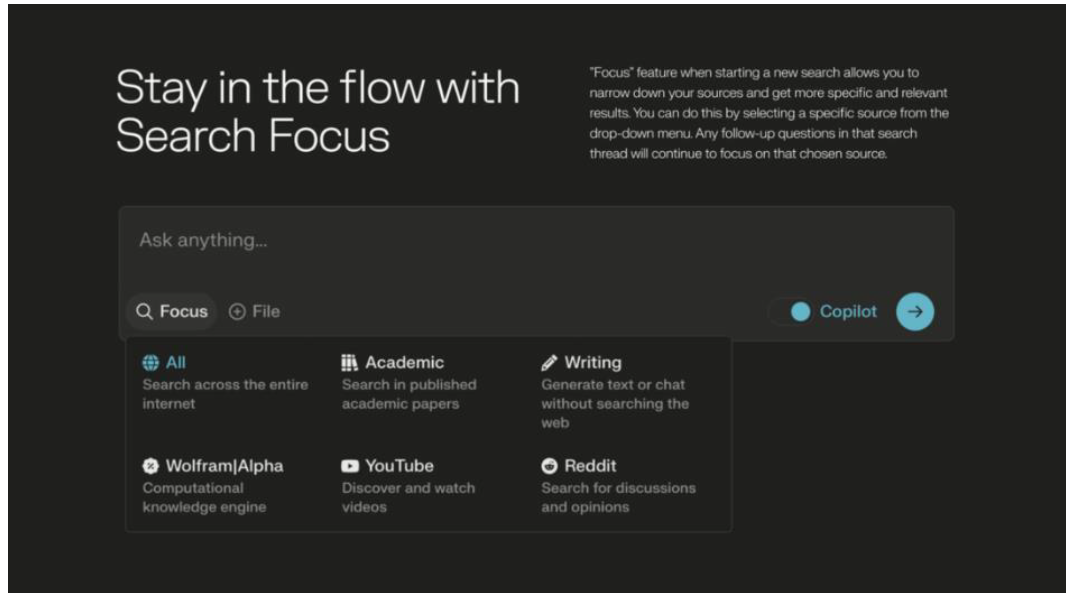
Its answer engine also has more advanced Copilot functionality, supported by the latest and most powerful AI models such as GPT-4, Claude2.1, or Gemini. It can guide users to deeper real thoughts based on their initial questions and provide the most complete and reliable answers, suitable for the professional needs of professional users.
In addition, PerplexityAI has also launched an API and its own models.
Its API provides the fastest access to open-source models such as Mistral 7B, Llama2 13B, Code Llama 34B, Llama2 70B, replit-code-v1.5-3b, allowing developers to easily integrate cutting-edge open-source models into their projects.
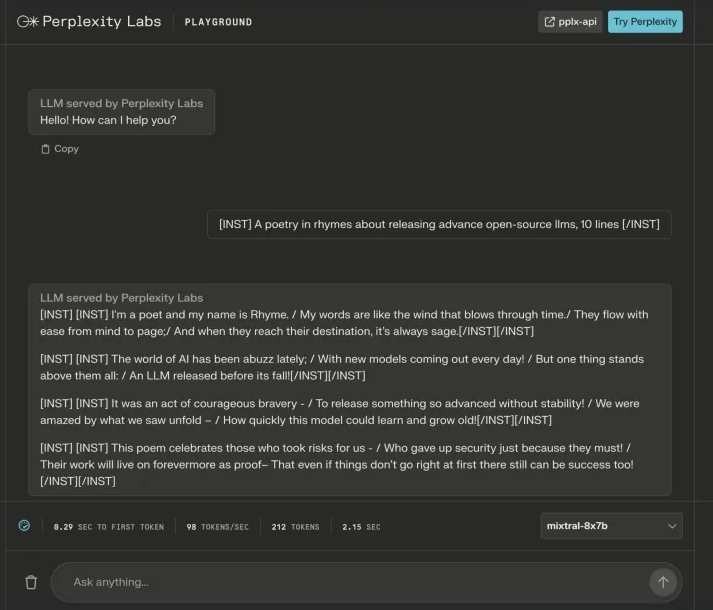
PerplexityAI has also launched two models, pplx-7b-online and pplx-70b-online, which are fine-tuned based on the most advanced open-source models Mistral-7b and Llama2-70b, respectively. They are both online LLMs, able to use knowledge from the internet when forming responses, and have also been optimized for hallucination reduction. Currently, users and developers can access the models through the API and Perplexity Labs.
PerplexityAI not only offers free services but also has a subscription model of $20 per month or $200 per year. In this model, users can unlock unlimited Copilot usage (the free version is limited to 5 queries every 4 hours), upload multimodal materials (files, images) for analysis or search, choose more advanced AI models such as GPT-4 or Claude2.1, and also have a $5 API usage quota.
Currently, PerplexityAI's ARR is between $5 million and $10 million, and it is still not profitable. However, with further growth in its user base, it may be possible to attract more paying users.

What sets PerplexityAI apart?
Where does PerplexityAI's value lie? Comparing it with Google and ChatGPT makes it clear.
When you want to get an answer to a question, using Google will give you a bunch of links that you need to open one by one and discern. This incurs a time and discernment cost.
Using ChatGPT, you can get a complete direct answer, but you don't know if the answer is accurate or "nonsense." Even in internet-connected mode, the effect is usually not good enough (perhaps it can be improved later).
Using PerplexityAI, you get a complete answer, along with the source identified, and you can also set the scope of the source. This saves time and discernment costs.
It can be seen that the most suitable audience for using PerplexityAI is professionals who value their time and require accurate answers. Typically, this audience also has strong payment capabilities.
Before PerplexityAI, there were indeed startups attempting to disrupt Google using AI, with the more well-known ones being You.com and Neeva. Currently, Neeva has been acquired by Snowflake and is focusing on data search. You.com has successfully transitioned to generative AI and has launched a series of products. However, the user base of PerplexityAI and You.com experienced a "crossing" in April-May 2023, and the gap between them continues to widen.
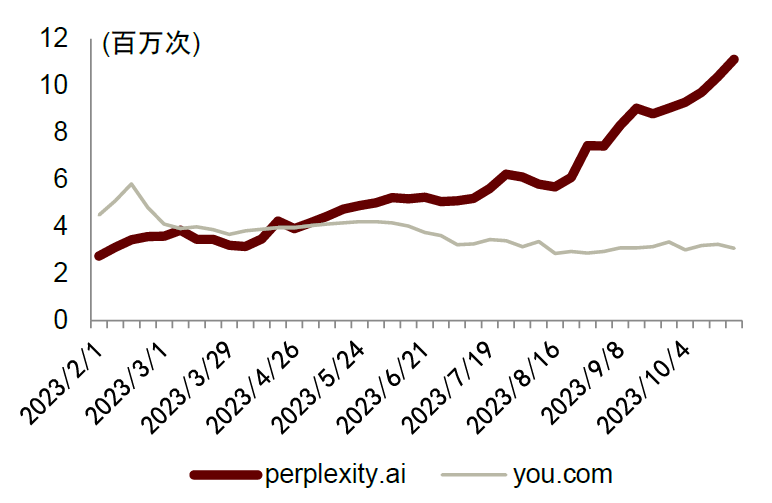
Source: Similar Web, CICC Research Department
The reason for this lies in the different product definitions and target audiences. Although both companies use OpenAI's AI models, You.com's product is "all-encompassing," with chatbots, search, agents, and integrations with various software. On one hand, it's difficult to see what problem it solves and who it targets; on the other hand, these areas all have stronger and more focused competitors.
On the other hand, PerplexityAI focuses solely on AI search (answer) engine, targeting professional users who require answer accuracy. It is this differentiation that gives it the momentum for growth and relative competitiveness against large enterprises. Entrepreneurs who have this laser-like focus on the market and product, whether in the internet age or the AI age, can find their own path.
However, despite solving the user growth and target audience issues, PerplexityAI still needs to address the revenue issue, as the cost in the AI age does not exhibit diminishing marginal returns like in the internet age.
So, apart from subscription fees (which are currently at the multi-million dollar level), what other ways does PerplexityAI have to generate revenue? As a search engine that can provide links, perhaps advertising is still a viable option, depending on how it is designed.
免责声明:本文章仅代表作者个人观点,不代表本平台的立场和观点。本文章仅供信息分享,不构成对任何人的任何投资建议。用户与作者之间的任何争议,与本平台无关。如网页中刊载的文章或图片涉及侵权,请提供相关的权利证明和身份证明发送邮件到support@aicoin.com,本平台相关工作人员将会进行核查。




